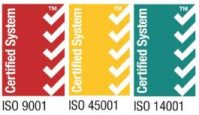Water treatment for the perfect cup of coffee!
May 20th, 2015
Water is the secret to brewing a perfect cup of coffee. A perfect cup of coffee can be achieved through the control of the minerals, such as sodium, magnesium and calcium cations in water.
Coffee is a part of most everyone’s daily lives and gets the brain into gear and gives pleasure. Water is not only the main ingredient of coffee (98.5 percent to 99 percent), but it is also a key to bringing out different flavors from the coffee bean.
When it comes to water quality, using previously boiled water is bad to brew coffee. Fresh and cold water with dissolved oxygen makes coffee taste better.Why is mineral content in water important? Hard water will generally produce a better tasting coffee compared to soft water; however, hard water will cause scale buildup inside the coffee equipment such as pumps, boilers and valves. This will increase long-term maintenance costs. In order to balance the taste of coffee and maintenance requirements for the coffee equipment, below are some of the different water treatments to consider:
- Polyphosphate treated water: A polyphosphate filter only releases polyphosphate to the treated water in order to form a thin, protective layer on the metallic surfaces of the coffee machine. As a result, this technology inhibits scale deposition. There is no removal of chlorine from the water. Thus, polyphosphate treated water will not be a good choice for brewing coffee.
- Distilled water: Distilled process will remove all dissolved solids, including minerals and will keep all VOC (volatile organic compounds) and any gases in water such as chlorine. Since no minerals are in the water, this leads to under-extraction of coffee aroma compounds. As a result, the brewed coffee is flat. However, using distilled water will protect the equipment from scaling.
- Reverse Osmosis (RO): RO treated water is close to distilled water and basically is a pure and corrosive form. There are no minerals, causing the coffee to taste flat. Although RO water can prevent scale, it will rust the equipment due to its aggressiveness. Since TDS is very low, this may cause the equipment sensor to stop functioning. A blending RO system has a built-in, by-pass tubing and a valve to mix incoming water and treated water as well as provides a mechanism to dial in the precise TDS level to bring some hardness back and to make water less corrosive. Thus, if the cation concentration is right, blending RO water will make good coffee.
- Softened water: Softening uses ion exchange technology to take out calcium and magnesium ions and introduce sodium ions into treated water. Therefore, softened water causes a flat taste for brewed coffee. Softened water will protect the equipment without scale out. Water softener itself will not remove chlorine from water and chlorine damages the resin beads due to its oxidation power.
- Activated catalytic carbon with ion exchange scale control: There are mixed carbon and ion exchange resin bead products specially designed for coffee, tea and espresso applications. This technology improves not only bad odor and taste, but also reduces hardness in proper range. Therefore, this treated water makes coffee taste great.
It is clear that the chemical composition in water plays a very important role for brewing a perfect cup of coffee.

![]()






